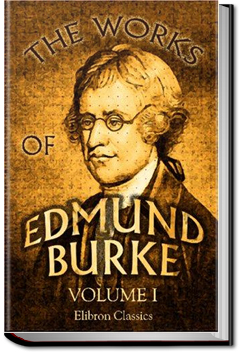

Whilst we consider taste merely according to its nature and species, we shall find its principles entirely uniform; but the degree in which these principles prevail, in the several individuals of mankind, is altogether as different as the principles themselves are similar. For sensibility and judgment, which are the qualities that compose what we commonly call a taste, vary exceedingly in various people. From a defect in the former of these qualities arises a want of taste; a weakness in the latter constitutes a wrong or a bad one. There are some men formed with feelings so blunt, with tempers so cold and phlegmatic, that they can hardly be said to be awake during the whole course of their lives. Upon such persons the most striking objects make but a faint and obscure impression. There are others so continually in the agitation of gross and merely sensual pleasures, or so occupied in the low drudgery of avarice, or so heated in the chase of honors and distinction, that their minds, which had been used continually to the storms of these violent and tempestuous passions, can hardly be put in motion by the delicate and refined play of the imagination. These men, though from a different cause, become as stupid and insensible as the former; but whenever either of these happen to be struck with any natural elegance or greatness, or with these qualities in any work of art, they are moved upon the same principle.
The cause of a wrong taste is a defect of judgment. And this may arise from a natural weakness of under
Get ALL YOU CAN BOOKS absolutely FREE for 30 days. Download our FREE app and enjoy unlimited downloads of our entire library with no restrictions.
Have immediate access and unlimited downloads to over 200,000 books, courses, podcasts, and more with no restrictions.
Everything you download during your trial is yours to keep and enjoy for free, even if you cancel during the trial. Cancel Anytime. No risk. No obligations.
For just $24.99 per month, you can continue to have unlimited access to our entire library. To put that into perspective, most other services charge the same amount for just one book!

As avid readers, we understand the joy of immersing ourselves in a captivating story or getting lost in the pages of a good book. That's why we founded All You Can Books back in 2010, to create a platform where people can access an extensive library of quality content and discover new favorites.
Since our founding days, we’ve continuously added to our vast library and currently have over 200,000 titles, including ebooks, audiobooks, language learning courses, podcasts, bestseller summaries, travel books, and more! Our goal at All You Can Books is to ensure we have something for everyone.
Join our community of book lovers and explore the world of literature and beyond!